Understanding the peculiar behaviours of our feathered companions is an integral part of responsible pet ownership. If you’ve found yourself wondering, “Why does my parakeet keep eating paper?” you’re not alone.
This guide delves into the various reasons behind this intriguing behaviour, shedding light on potential explanations.
From dietary considerations to instinctive behaviours, uncovering the root cause is essential for providing your parakeet with the best possible care.
By exploring these reasons, we aim to empower bird owners to address this habit proactively, ensuring the health and well-being of their cherished avian friends.
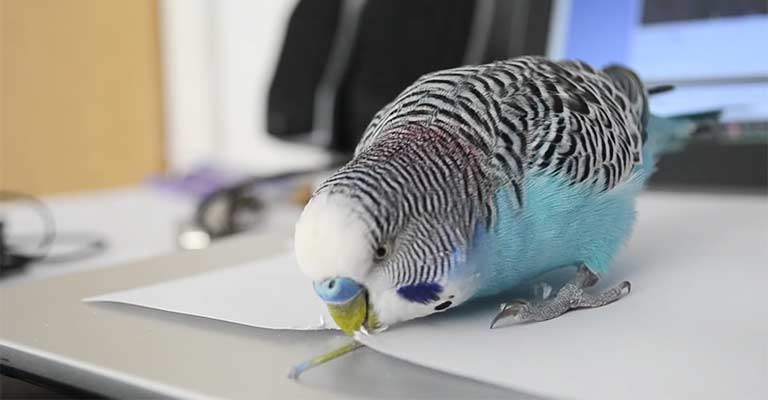
7 Reasons Why Does My Parakeet Keep Eating Paper?
Witnessing your parakeet repeatedly indulging in paper consumption may raise concerns. Understanding the reasons behind this behaviour is crucial for their well-being.
Here are some potential explanations for why your parakeet keeps eating paper
1. Dietary Deficiency
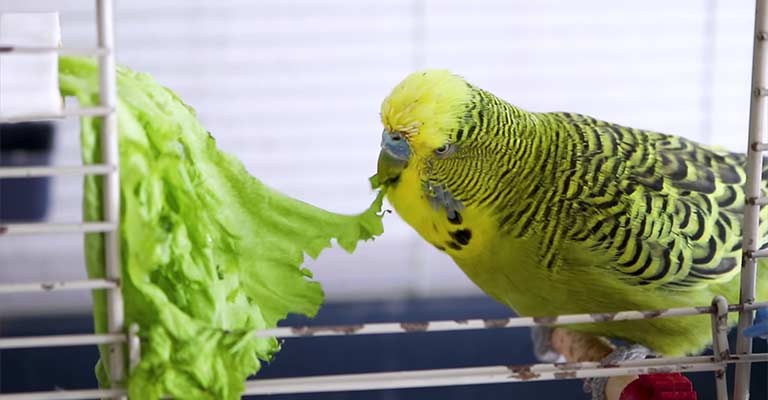
A lack of essential nutrients in your parakeet’s diet might lead them to seek alternative sources. Ensure they receive a balanced diet rich in vitamins and minerals to curb this behaviour.
2. Exploratory Instincts
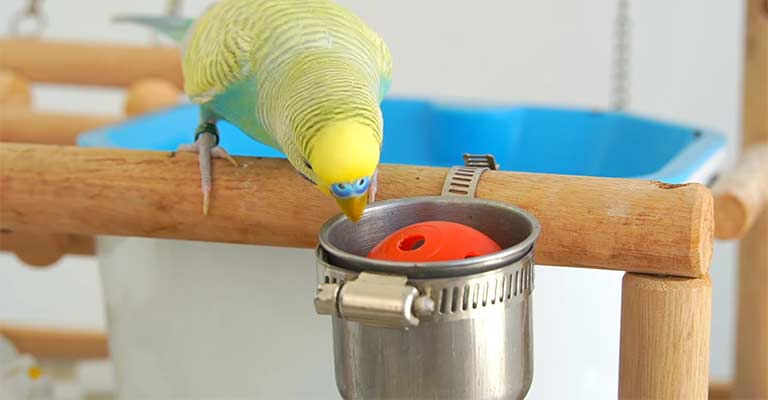
Parakeets are naturally curious birds and may chew on paper out of sheer exploration. Providing a variety of safe toys and materials for mental stimulation can help redirect this behaviour.
3. Nesting Instincts
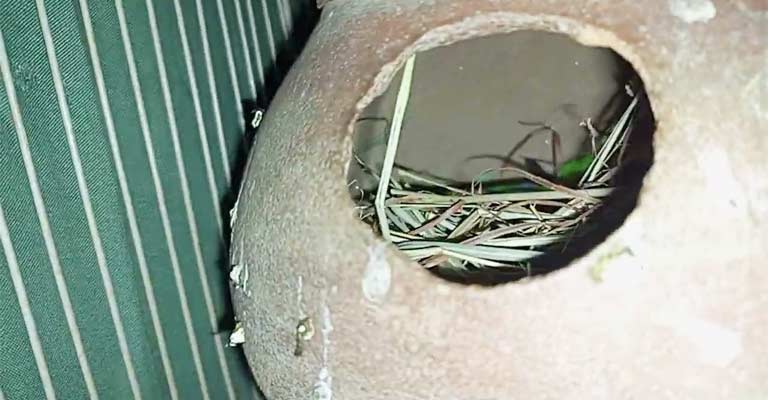
Chewing and shredding paper can be an expression of nesting instincts. If your parakeet is in breeding condition, offering suitable nesting materials may alleviate this behaviour.
4. Boredom
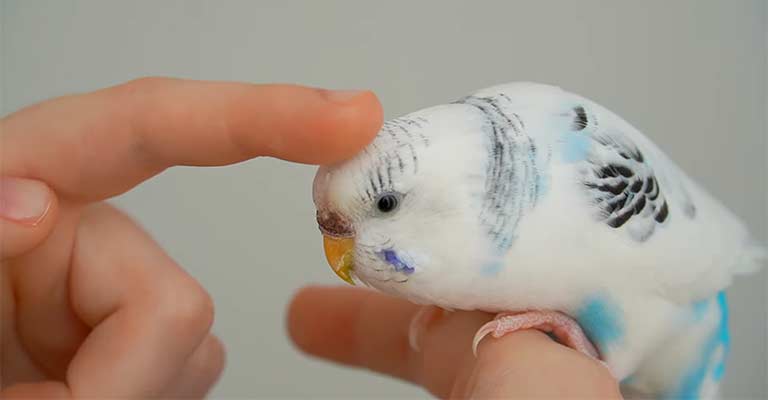
Boredom can prompt paper chewing as a form of entertainment. Enhance their environment with interactive toys, perches, and regular interaction to combat boredom.
5. Attention-Seeking Behavior
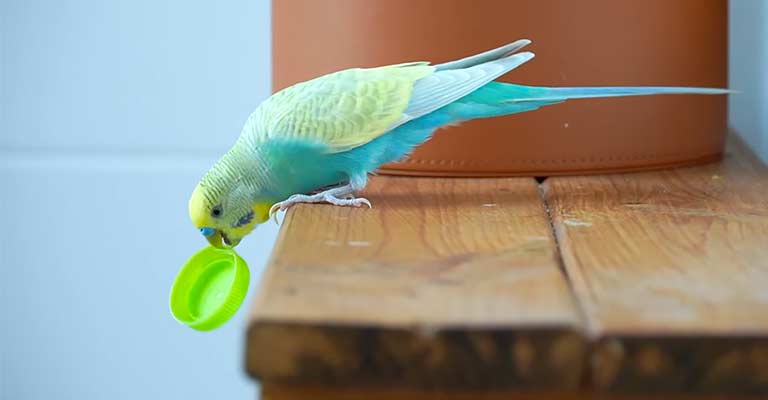
Parakeets may eat paper to attract attention. Ensure they receive adequate social interaction and engage in bonding activities to reduce the need for attention-seeking behaviours.
6. Compulsive Behavior
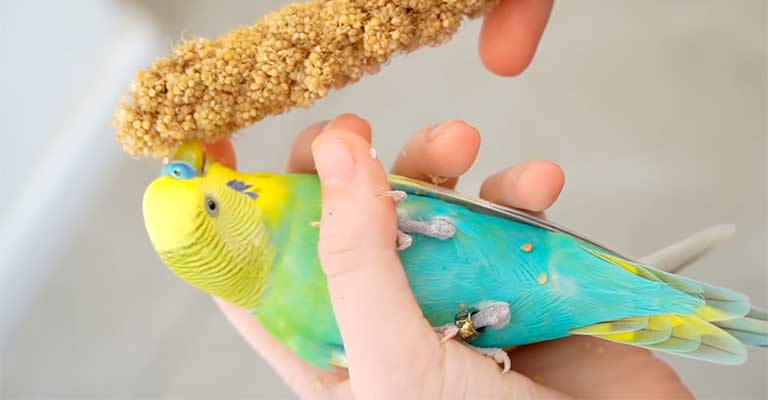
In some cases, parakeets develop compulsive behaviours, including paper eating. Identifying and addressing potential stressors in their environment is essential to mitigate compulsive actions.
7. Mimicking Behavior
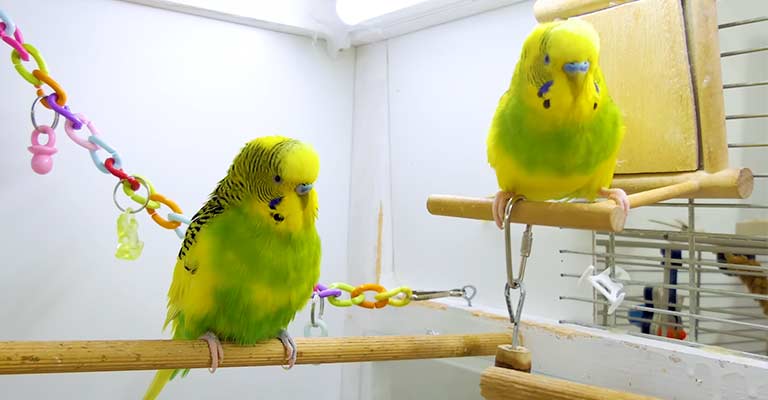
If your parakeet observes you tearing or handling paper, they may mimic this behaviour. Be mindful of your actions around them and provide alternatives like safe chew toys.
What Happens If A Parakeet Eats Paper?
While parakeets are known for their inquisitive nature, ingesting paper can pose various risks to their health. Understanding the potential consequences is vital for responsible parakeet care.
Here are some possible outcomes if a parakeet eats paper:
Digestive Blockages
Ingested paper may lead to digestive blockages, particularly if the parakeet consumes large quantities. Blockages can obstruct the digestive tract, causing discomfort and necessitating immediate veterinary attention.
Nutritional Imbalances
Eating paper may interfere with a parakeet’s nutritional intake. If they prefer paper over their regular diet, it can lead to deficiencies in essential nutrients, impacting overall health.
Choking Hazard
Small pieces of paper can pose a choking hazard. Parakeets may inadvertently ingest fragments while chewing, risking respiratory issues or blockages in the respiratory tract.
Toxicity Concerns
Certain types of paper may contain inks, dyes, or chemicals that can be toxic to parakeets. Ingesting such substances can result in poisoning, leading to severe health complications.
Compromised Respiratory Function
Inhalation of dust or particles from paper can affect respiratory function. Persistent exposure may lead to respiratory distress, coughing, or other respiratory issues.
Behavioural Issues
Regular consumption of paper can reinforce undesirable behaviours. If not addressed, it may become a habit, impacting the parakeet’s overall well-being and causing stress.
Vomiting or Regurgitation
Ingested paper can induce vomiting or regurgitation in parakeets. These physiological responses are signs of discomfort or digestive issues and should be promptly addressed.
What To Do If My Parakeet Keeps Eating Paper?
If your parakeet has developed a habit of eating paper, proactive measures are essential to ensure their well-being. Here are some actions you can take to address and redirect this behaviour, promoting a healthier and safer environment for your feathered friend.
Evaluate Diet and Nutrition
Assess your parakeet’s diet to ensure it meets their nutritional needs. Consult with a vet to address any deficiencies, ensuring your parakeet is receiving a balanced and enriching diet.
Provide Safe Chew Toys
Offer a variety of safe chew toys and materials to satisfy your parakeet’s natural need to chew. Select toys made from bird-safe materials, encouraging appropriate chewing behaviour.
Offer Mental Stimulation
Combat boredom by enriching your parakeet’s environment with mentally stimulating activities. Rotate toys regularly, introduce new elements, and engage in interactive play to keep them entertained.
Introduce Nesting Materials
If your parakeet is displaying nesting behaviours, provide appropriate nesting materials. This can redirect their interest in consuming paper and fulfil their natural instincts.
Regular Vet Check-ups
Schedule regular veterinary check-ups to monitor your parakeet’s health. Discuss the paper-eating behaviour with your vet, addressing any potential underlying health issues or concerns.
Supervise Interactions
When allowing your parakeet out of its cage, supervise their interactions with the environment. Minimize access to paper, especially if it contains inks or chemicals that could be harmful.
Environmental Enrichment
Create an enriched environment by adding perches, swings, and climbing structures. This encourages physical activity, providing an outlet for excess energy and minimizing the inclination to chew on inappropriate items.
By combining these actions, you can create a stimulating and safe environment for your parakeet, redirecting their behaviour away from paper consumption.
Consistency and patience are key as you work to promote healthy habits and ensure the well-being of your feathered companion.
FAQs
Can eating paper be harmful to my parakeet’s health?
Yes, ingesting paper can pose health risks, including digestive blockages, choking hazards, and exposure to potentially toxic substances. Monitoring their behaviour and providing alternatives are crucial for their well-being.
Is paper consumption a sign of boredom in parakeets?
Yes, parakeets may eat paper due to boredom. Offering a stimulating environment with toys, interaction, and mental challenges helps curb boredom-related behaviours.
Can dietary issues contribute to paper-eating behaviour?
Absolutely. Nutritional deficiencies in a parakeet’s diet may lead them to seek alternative sources, such as paper. Ensuring a well-balanced diet is crucial in addressing this behaviour.
How can I redirect my parakeet’s paper-eating habit?
Redirecting involves providing safe chew toys, introducing appropriate nesting materials, and ensuring a stimulating environment. Offering alternatives addresses their instincts and promotes healthier habits.
When should I seek veterinary advice for my paper-eating parakeet?
If paper-eating becomes excessive or is accompanied by signs of distress, seeking veterinary advice is crucial. A vet can assess your parakeet’s health, address potential issues, and guide behavioural modifications.
Conclusion
In deciphering the mystery of why parakeets indulge in paper consumption, we unveil a spectrum of possibilities—from dietary needs to instinctual behaviours.
Armed with this understanding, bird enthusiasts can take informed steps to redirect this habit towards healthier alternatives.
Whether it’s providing stimulating toys, addressing nutritional deficiencies, or introducing appropriate nesting materials, the goal is to create an enriched environment that satisfies your parakeet’s instincts.
By considering the factors outlined in this guide, you embark on a journey of fostering a happier, healthier, and more harmonious relationship with your paper-loving parakeet.